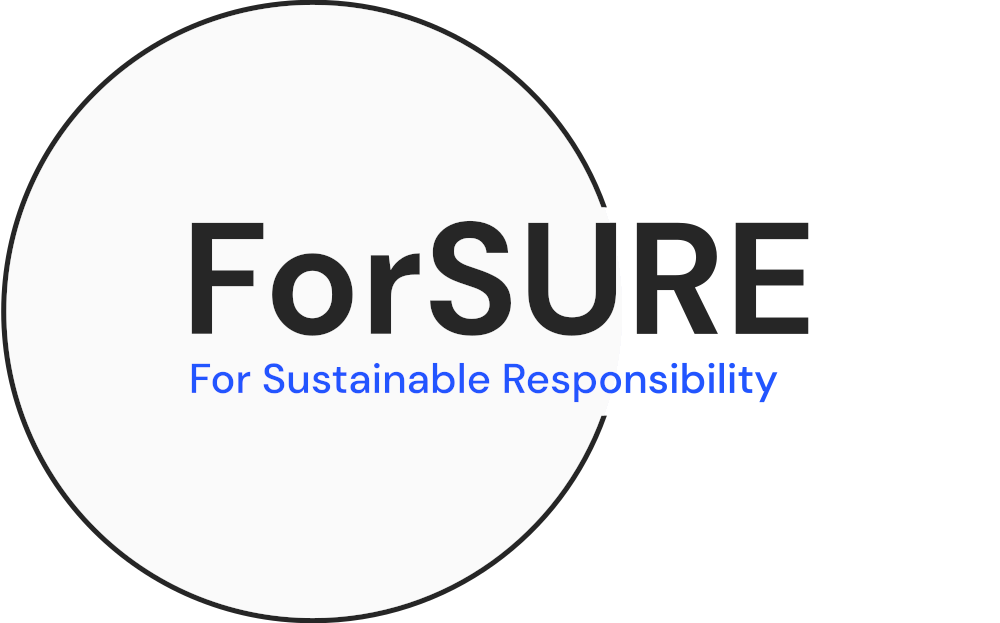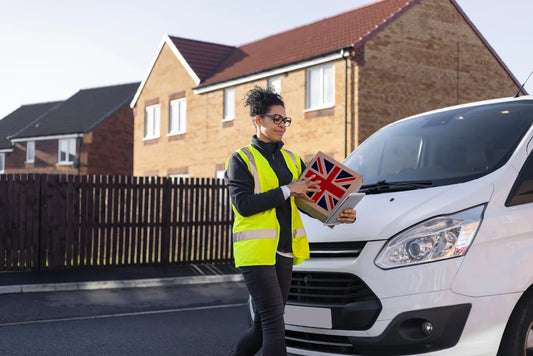Your Guide to VerpackG Registration & How to Obtain a LUCID Number
September 30, 2024 Niclas BrinkmannTable of Contents
The VerpackG register plays a critical role in shaping Germany’s sustainable future. The Packaging Act (VerpackG) was introduced to address the mounting environmental concerns related to packaging waste. For businesses operating within or exporting to Germany, compliance with this legislation is non-negotiable. Registering with the VerpackG ensures that companies take responsibility for the full lifecycle of their packaging, from production to post-consumer waste management.
At the core of this system is the LUCID number, a unique identifier that companies must obtain to legally sell packaged goods in Germany. The LUCID Packaging Register was developed as a transparency tool, helping regulators and consumers alike track which businesses are complying with their environmental obligations.
The importance of obtaining this LUCID number goes beyond merely avoiding penalties. As consumers and governments increasingly prioritize sustainability, compliance with regulations like VerpackG offers a competitive advantage. Businesses that register promptly and follow their reporting obligations signal their commitment to environmental stewardship—a value that is rapidly becoming a customer expectation.
What is the VerpackG Register?
The VerpackG register was established in accordance with the German Packaging Act to help mitigate the environmental impact of packaging waste. In 2019, the Verpackungsgesetz, commonly known as VerpackG, replaced earlier packaging laws to impose stricter requirements on businesses. The core objective of the law is to increase recycling rates and minimize waste by holding companies responsible for the lifecycle of their packaging.
Under the VerpackG, any business that introduces packaging into the German market must register with the LUCID Packaging Register. This applies to manufacturers, importers, online retailers, and even companies that operate internationally but sell packaged goods to German customers.
The scope of the VerpackG register is broad, covering all types of packaging, including sales packaging, grouped packaging (e.g., boxes holding several smaller items), and shipment packaging. Even small businesses and sole traders must comply if they are sending products to Germany.
By enforcing compliance through the VerpackG, the German government has ensured that manufacturers, rather than consumers or waste management companies, bear the financial burden of recycling. Businesses must not only register but also participate in a dual system, whereby they contribute to the costs of collecting and recycling the packaging they place on the market. This is a significant shift toward a circular economy, where waste is minimized and resources are reused.
Failure to comply with the VerpackG register can lead to substantial penalties, but it can also harm a business’s reputation. With sustainability becoming a key differentiator in the market, consumers are more likely to support brands that demonstrate environmental responsibility. Registration is not just about compliance—it’s about making a statement that your company is serious about reducing its ecological footprint.

Understanding the LUCID Number
The LUCID number is an essential part of the VerpackG compliance process. Managed by the Central Agency Packaging Register (ZSVR), the LUCID database acts as a transparent register of all businesses that place packaging into the German market. The purpose of this transparency is to ensure that no company operates as a "free rider" in the system, meaning that every company contributes its fair share to the recycling infrastructure.
Once a business registers its packaging with the LUCID Packaging Register, it is assigned a LUCID number. This unique identifier is then used to track the business’s packaging activity. Not only is the number required for legal compliance, but it must also be submitted to any marketplace or online platform where the business sells its products. Platforms like Amazon and eBay, for example, require sellers to provide their LUCID number to prove that they are compliant with German packaging laws.
Beyond compliance, the LUCID number also serves as a public accountability tool. Consumers, competitors, and regulatory bodies can check the database to verify whether a company is fulfilling its packaging obligations. For companies, this offers a level of transparency that can build trust with environmentally conscious customers.
However, obtaining the LUCID number is just the first step. Businesses must continue to comply with all VerpackG regulations, including regular reporting of packaging volumes and ensuring proper participation in the dual system. The LUCID number is not a one-time registration—it is an ongoing responsibility that requires diligent attention to packaging activities and recycling contributions.
Step-by-Step Guide to Register for the LUCID Number
Navigating the process of registering for the LUCID number is relatively straightforward, but it’s important to follow each step carefully to ensure compliance. Here’s how businesses can register:
- Visit the LUCID Registration Portal: The process begins by accessing the official LUCID Packaging Register website. The registration page is available in multiple languages, including English, making it accessible for international businesses.
- Create a Company Account: Businesses will need to provide essential details such as company name, contact information, packaging types, and the brand names under which their products are sold. This information ensures that the correct entities are held responsible for the packaging placed on the market.
- Complete the Packaging Licensing: Once the registration is verified, the company must complete its packaging licensing with a dual system provider. This step is crucial as it ensures the business is paying its share of the recycling costs. Several dual systems are available, including Grüner Punkt, Interzero and many more, and businesses can choose the provider that best fits their needs.
- Submit Packaging Data: After licensing, the company must report its packaging volumes. This involves providing data on the types and quantities of packaging the business expects to place on the market within the year. If any changes occur during the year (e.g., the company introduces new packaging types), these details must be updated in the LUCID register.
By following these steps, businesses can successfully register for their LUCID number and ensure compliance with the VerpackG. However, the process doesn’t end with registration—ongoing reporting and updates are key to staying compliant.
What Happens After Registration?
Once a business has obtained its LUCID number, it must adhere to several post-registration obligations to maintain compliance with the Packaging Act (VerpackG). These obligations include annual reporting of packaging volumes and ensuring participation in a dual system for waste management.
Each year, businesses are required to submit data on the amount of packaging they have placed on the German market. This reporting is critical for determining the fees that the business must pay to contribute to the recycling system. The data is submitted via the LUCID Packaging Register, and businesses must ensure that their reports are accurate and timely.
In addition to the annual reporting, businesses must keep their registration details up to date. For example, if a company changes the types of packaging it uses or introduces new products, it must update this information in the LUCID database. Failure to do so could result in fines or penalties.
The registration process and reporting obligations are designed to create a level playing field for all businesses operating in Germany. By ensuring that every company contributes to the recycling costs, the VerpackG prevents "free riders" from gaining an unfair advantage. Moreover, businesses that comply with the law demonstrate their commitment to sustainability, which can enhance their brand reputation in a competitive market.
Penalties for Non-Compliance
The consequences of non-compliance with the Packaging Act (VerpackG) are severe and can have long-lasting impacts on a business. If a company fails to register with the LUCID Packaging Register or does not report its packaging volumes accurately, it faces penalties that go beyond simple fines. The fines themselves can be substantial, reaching up to €200,000, depending on the severity and duration of the violation. However, financial penalties are not the only concern. Businesses that do not comply may also face a sales ban in Germany, which can be devastating for companies relying on the German market for revenue.
This sales ban can be enforced immediately, leaving companies unable to legally sell products until they rectify their non-compliance. For businesses, especially e-commerce sellers and those operating internationally, this could result in lost revenue, strained relationships with customers, and long-term reputational damage.
Additionally, public access to the LUCID Packaging Register means that competitors and consumers can see which companies are complying with their legal obligations. Non-compliance can erode customer trust and harm the business’s brand image. In an era where consumers prioritize sustainability, failing to comply with the VerpackG could lead to lost business as environmentally conscious customers seek alternatives that demonstrate environmental responsibility.
The key takeaway for businesses is that non-compliance is not worth the risk. Staying up-to-date with registration and reporting obligations is essential not only to avoid penalties but also to maintain a strong market position and reputation.

Forecasting & Post-Reporting Obligations
After obtaining a LUCID number, businesses must ensure that they comply with the ongoing reporting obligations set forth by the VerpackG. Each year, companies are required to submit a report detailing the total volume of packaging they have placed into the German market. This annual reporting is a crucial part of the system, ensuring that businesses continue to contribute to the costs of collecting and recycling packaging waste.
In this regard, ForSURE’s EPR software can be an invaluable asset. The software automates the process of gathering and reporting data on packaging volumes, reducing the burden on businesses. Instead of manually calculating and submitting data, the software tracks the necessary information and submits the required reports on time, ensuring full compliance with the VerpackG.
Moreover, ForSURE’s software goes beyond just fulfilling reporting obligations. It also includes forecasting tools that help businesses plan for future packaging requirements. By analyzing past data and trends, the software can predict future packaging needs, enabling companies to optimize their packaging strategies. This is particularly helpful for businesses that experience seasonal fluctuations in demand or are planning to expand their product offerings.
Accurate forecasting can save companies both time and money. By anticipating future packaging volumes, businesses can avoid the risk of under-reporting or over-reporting, both of which could lead to compliance issues or unnecessary costs. ForSURE’s software ensures that businesses are always prepared for the next reporting cycle, helping them meet their regulatory obligations efficiently and cost-effectively.
For businesses operating in multiple countries, the software’s multi-market compliance feature is particularly useful. As packaging laws differ across regions, ForSURE’s platform allows companies to manage their compliance obligations in multiple jurisdictions from one centralized system. This level of automation and integration simplifies the entire process, freeing up valuable resources and reducing the risk of human error.
Wrapping Up: Ensuring VerpackG and LUCID Compliance
In summary, registering your packaging under the VerpackG and obtaining a LUCID number is not only a legal requirement for doing business in Germany but also a strategic move toward sustainability. Compliance with the Packaging Act demonstrates that your business is committed to reducing its environmental impact and contributing to the circular economy, a value that resonates strongly with today’s eco-conscious consumers.
Failure to comply with the VerpackG can result in significant penalties, including fines of up to €200,000 and a potential ban on selling products in the German market. By staying compliant and using tools like ForSURE’s EPR software, businesses can ensure they meet their reporting obligations while also benefiting from automated data collection, accurate forecasting, and multi-market compliance support.
Don’t wait until penalties or disruptions impact your business. By taking the necessary steps to register with the LUCID Packaging Register and staying on top of your ongoing obligations, you can safeguard your business’s operations and reputation. ForSURE’s software can help simplify the process, making compliance easy and efficient while allowing you to focus on growing your business.
FAQ
-
What is the VerpackG register, and why is it important?
-
How do I obtain a LUCID number?
-
Who needs to register with the VerpackG register?
-
What happens if I don’t register for a LUCID number?
-
How does ForSURE's software help with LUCID number compliance?




